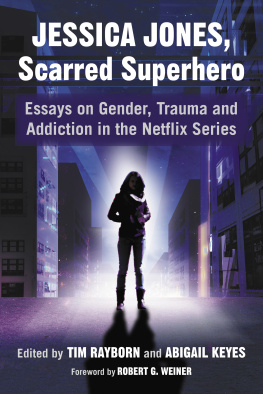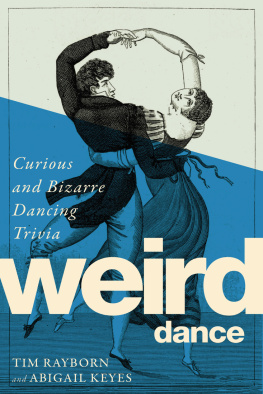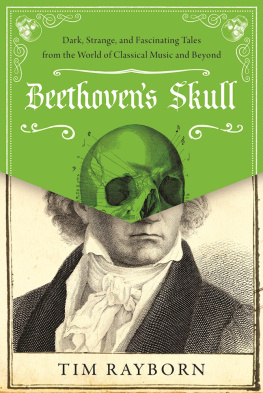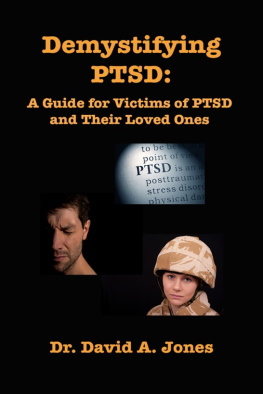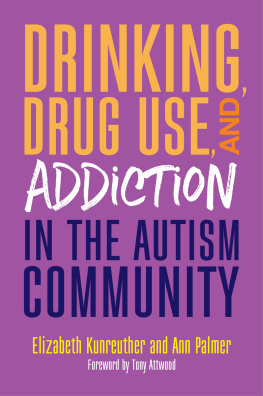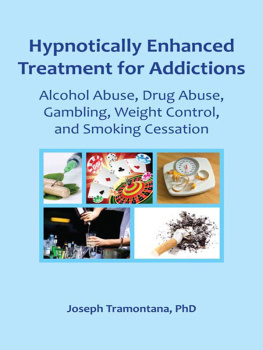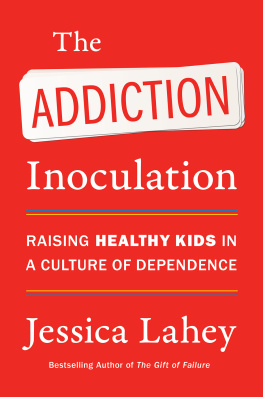
Jessica Jones, Scarred Superhero
Essays on Gender, Trauma and Addiction in the Netflix Series
Edited by TIM RAYBORN and ABIGAIL KEYES
Foreword by Robert G. Weiner

McFarland & Company, Inc., Publishers
Jefferson, North Carolina
WORKS BY TIM RAYBORN FROM MCFARLAND
A New English Music: Composers and Folk Traditions in Englands Musical Renaissance from the Late 19th to the Mid20th Century (2016)
Against the Friars: Antifraternalism in Medieval France and England (2014)
The Violent Pilgrimage: Christians, Muslims and Holy Conflicts, 8501150 (2013)
LIBRARY OF CONGRESS CATALOGUING DATA ARE AVAILABLE
BRITISH LIBRARY CATALOGUING DATA ARE AVAILABLE
e-ISBN: 978-1-4766-3157-8
2018 Tim Rayborn and Abigail Keyes. All rights reserved
No part of this book may be reproduced or transmitted in any form or by any means, electronic or mechanical, including photocopying or recording, or by any information storage and retrieval system, without permission in writing from the publisher.
Front cover images 2018 iStock
McFarland & Company, Inc., Publishers
Box 611, Jefferson, North Carolina 28640
www.mcfarlandpub.com
Foreword
The Not Quite Super Jessica Jones
Robert G. Weiner
When writer Brian Michael Bendis and artist Michael Gaydos debuted Jessica Jones in 2001s Alias #1, it was clear that she was not an ordinary costumed Marvel superhero character. Yes, she had super powers. Yes, Bendis gave her a back story that included a costume and a code name: Jewel. Her back story included hanging out with the Avengers and being friends with Captain/Ms. Marvel (Carol Danvers). She was present when Peter Parker was bitten by that radioactive spider.
Yet, when Jones was first introduced in Alias #1, it was not as a costumed superhero, but rather as a private investigator (the origin came later). She was doing the typical job of a PI by investigating the cheating wife of a client (who then proceeds to take out his anger on Jones, much to his detriment). There were other things, too: Jones had a drinking problem, loved to have sex, was street smart, and talked with the crudeness of a sailor. As Jeph Loeb points out in the afterword to the Alias Omnibus, Marvel had published adult oriented comics before, but this was the first time the F-bomb was used repeatedly in one. Bendis did not pull any punches with this character. Alias was a series for adults; it was written as such and was part of Marvels new MAX imprint for mature readers.
When I first read Alias, I thought that this was a Marvel character that was less than super. There was something more human, more relatable, and more honest about her than previous Marvel heroes. It wasnt that she was a flawed superhero; rather, she was a deeply flawed human being. Therein lies the dichotomy. All of us have struggles and have probably been in some of the situations Jones found herself in or at least know someone like Jones (albeit without the powers). She is relatable precisely because she is flawed (the Netflix series kept this aspect of her). Bendis was honestly taking Marvel comics further than they had been before, despite the fact that nearly all Marvel characters have some kind of flaw. Jones had lived a life filled with so many difficulties (including being abused by the villain known as the Purple Man/Killgrave) that she did not suffer fools. Her career as the superhero Jewel was less than stellar. Jones relationships with others were often fraught with complications and her clients were sometimes difficult to deal with. At her core, though, she was a good person who, despite her problematic past, still wanted to do the right thing and make a life for herself.
To make Jessica Jones a private investigator was not much of stretch for Bendis. He had been writing crime related comics for years with Fire (1993), Goldfish (1994), Jinx (1996), Torso (1998, about true crime hero Elliot Ness) and Powers (2000). It is worth noting that Bendis character Jinx is a female bounty hunter, and Powers features two police detectives who investigate murders related to those who have superpowers. Powers was first published by Image Comics and then by Marvel Comics Icons imprint. Jessica Jones fit right into Bendis tendency for gritty crime stories. The difference is that Jones would become a part of the Marvel Universe proper.
At first glance, that Marvel Studios and Netflix would produce Jessica Jones as a 13-part series seemed odd. Jones as a character was still minor and mostly unknown, but Netflix had seen tremendous success with their other original content, including House of Cards and Orange Is the New Black. Marvels first Netflix series Daredevil was a bona fide hit and Jessica Jones followed suit. The series kept all of the angst of Bendis and Gaydos original Alias run along with all of the adult content. Here was a Marvel series that was NC-16, a show that was definitely not typical childrens Saturday morning cartoon fare. With Netflix, Marvel (and by extension Disney) did not have to worry about making the series palatable to the general public, unlike their movies, animated series, and other network television programs. This worked to the advantage of the series. Jones could be played just like she was in the original Alias comics, having the same problems and desires. Krysten Ritters excellent performance was one of deadpan honesty. She, too, ultimately cared about the people around her as she learned what it meant to have superpowers, but not be super in the traditional sense. In the series, Jones has to make some hard choices that, for example, Spider-Man or Captain America or even Daredevil cannot or would not make.
Unlike the Alias comics, the 13 episodes of the Netflix series mostly revolve around the abusive dynamic between Jones and Kilgrave (renamed from Killgrave and played with a total lack of empathy by the exquisite David Tennant). Kilgrave is originally a Daredevil villain, and his back story with Jones is only given a couple of issues in the original Alias comic series. In the show, Kilgrave is the ultimate narcissistic villain. Jones even tries to teach him to do something selfless for its own sake, but this does not work. His obsession with her is painful to watch, and the abuse and continued rape that she endures at his hand does make for uncomfortable viewing. The dynamic between her and Luke Cage (played with terrific believability by Mike Colter) keeps the tension high and makes for a compelling romance. Time will tell how this plays out in future series; in the comics, Jones and Cage get married and they have a daughter.
Tim Rayborn and Abigail Keyes have assembled a finely crafted collection of essays on the Jessica Jones television series. The offerings are unique and provide scholars and fans with a useful and relevant collection. So kick back, read an essay, re-watch an episode of Jessica Jones, then repeat as needed. Find the humanity within yourself from this collection in conjunction with the Netflix series.
BIBLIOGRAPHY
Loeb, Jeph. Jeph Loebs Introduction from Alias Volume I Hard Cover, in Brian Michael Bendis and Michael Gaydos, Alias Omnibus
Next page
